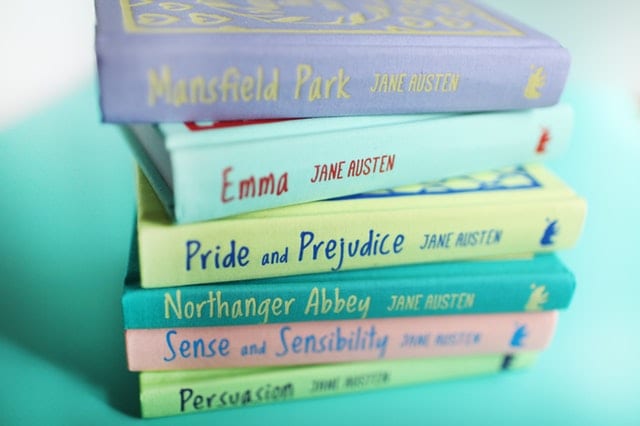‘Decency is what your grandmother taught you!’ a beleaguered Morgan Freeman appeals to a frenzied courtroom in the film version of “Bonfire of the Vanities.” This scene reveals public figures of authority and private citizens alike on the verge of bankrupting what little moral inventory they still retained after a series of related circumstances and opportunities. Meanwhile, in real life, a celebrated attorney goes on TV to confirm that lying to Congress is a crime, but simultaneously asserts that criminalizing lying itself (to the press, for example) would be an abridgment of our First Amendment rights — possibly true, but a head-shaking premise, to be sure, in considering how reprehensible lies and dishonesty are commonly held to be .
In the spirit that it does indeed “take a village,” here are 5 ways to add virtue to the 21st century learning.
1) Bring Back the Classics
A good story often teaches the best lessons. The epics, poetry, theatre, and other literature of Antiquity through the late Renaissance is generationally revered for its exploration of human nature. Even as moral codes shifted throughout the centuries, the fundamental virtues espoused in these philosophical dramas, tragedies, and comedies: duty, honesty, patriotism, modesty, and empathy (among the more popular) have been cloaked in soul-stirring language and woven throughout the great narratives of history.
Check out some of these free content development resources
2) Celebrate Character
“All history becomes subjective; in other words, there is properly no history; only biography,” Emerson famously wrote. Indeed, time across the globe can be marked by the impact of the great characters of the ages. Almost every leader has been faced with particular challenges and choices for which there may not have been 100% moral certainty in all aspects. Sacrifice, determination, vision, and ambition are the themes likely to be found here, but, through the study of journals, letters, and other works of their followers and opponents, a (more) complete version of the person can be perceived. Students get to consider all the context behind the decisions made that changed history and to think for themselves how they might have acted and why.
3) Appeal to Humanity
Teaching empathy has many benefits beyond creating a compassionate, responsible, and responsive society. It also empowers individuals by providing meaningful pathways to consider their sense of connection to other individuals and groups. Change starts here.
4) Team Wins
Founder Thomas Jefferson opined, “An enlightened citizenry is indispensable for the proper functioning of a republic.” While this sentiment engraved the learning of our civic curriculum within the United States educational system, it is the virtues of patriotism and self-sacrifice to the national interest to which this sentiment appeals. Great teams have great players who work well together. By fostering the best in ourselves as individuals, we promote the best in ourselves, collectively — E Pluribus Unum — out of many, one. Fairness, cooperation, compromise, and communication are the skills and tools of this virtue-building.
5) Personal Growth
Beyond the obvious pragmatic (if not comforting) benefits to a more virtuous society, some observations have indicated a positive impact among the individual people who undertake to become better people. Showing kindness and basic civility, meeting responsibility, and embracing challenges are among the key concepts in this area.
People feel better about themselves when they try to be better people.
We need to teach young students to feel good, not awkward or self-conscious, about doing the right thing. Examples of selfless and virtuous behavior, from all walks of life and all points along the political continuum, past and present, should be pointed out and celebrated.
By exemplifying and reinforcing our civic virtues, we’re building better futures for ourselves.
Author
Stephen Gibson, Director of Humanities Development
Stephen came to A Pass Educational Group following nearly a decade of contributions to numerous online, textual, and ancillary content development projects involving the major educational publishing consortia at both K-12 and university levels. He is a member in good standing of the National Council for Social Studies and received a Letter of Commendation from the National Merit Scholarship Program. Stephen has held a Massachusetts Teachers Certification in History and Social Studies since 2002. Stephen studied at Harvard University and holds his B.A.S. degree in History from the University of Pennsylvania.




